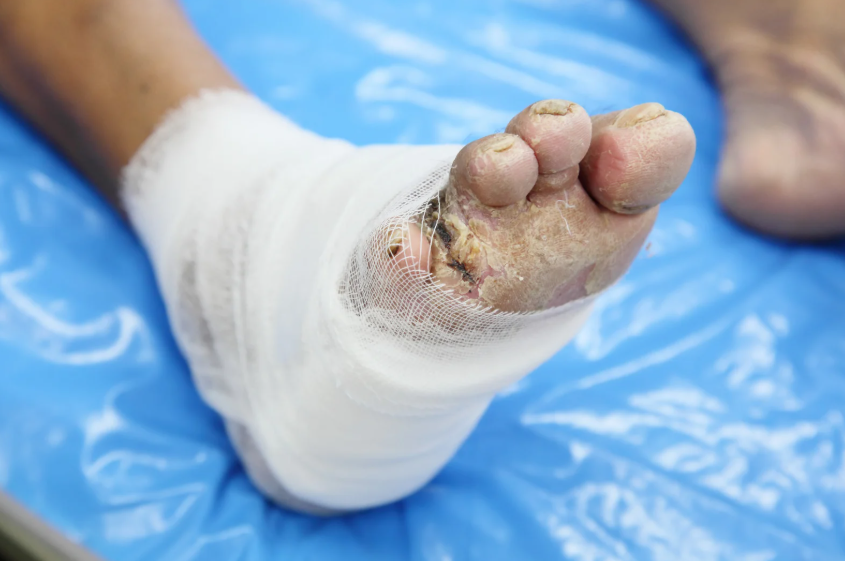Pressure ulcer management is a crucial aspect of care for patients with mobility challenges, chronic illness, or advanced age. Pressure ulcers, also known as bedsores or decubitus ulcers, form due to prolonged pressure on the skin, often over bony areas like the hips, back, or heels. These wounds can escalate quickly from mild skin irritation to deep tissue damage, affecting muscles and even bones. At Kalingap Wound Care Clinic, expert care focuses on early detection and tailored intervention to prevent complications and promote healing.
What Makes Pressure Ulcers Complex to Treat
Effective pressure ulcer management requires more than just basic wound care. These ulcers can become chronic, especially when accompanied by poor circulation, infection, or underlying conditions like diabetes. Deep tissue involvement and the risk of osteomyelitis make treatment highly complex. This is why Kalingap Wound Care Clinic integrates orthopedic expertise into its care model—addressing not only the wound itself but the structural and musculoskeletal issues that contribute to its persistence.
The Unique Expertise of Orthopedic Specialists
Orthopedic specialists bring a vital skill set to pressure ulcer management. Their training allows for in-depth analysis of how bones, joints, and pressure points interact—insights that are essential for both healing and prevention. At Kalingap Wound Care Clinic, orthopedic evaluation is part of the comprehensive care plan, helping to identify pressure sources, assess mobility limitations, and design long-term solutions that go beyond surface-level treatments.
Diagnostic and Surgical Interventions by Orthopedic Specialists
Advanced pressure ulcer management may involve surgical interventions, especially for wounds that expose muscle or bone. Orthopedic specialists at Kalingap Wound Care Clinic perform precise debridement to remove dead tissue and prevent infection. In cases of osteomyelitis or severe structural damage, surgical procedures like bone shaving, contracture release, or flap reconstruction may be necessary. These interventions are key to restoring function and preventing recurrence.
Collaborative Care: Working with Wound Care Teams
At Kalingap Wound Care Clinic, orthopedic specialists are part of a multidisciplinary team dedicated to effective pressure ulcer management. They work closely with wound care nurses, physical therapists, and infection control experts to ensure comprehensive treatment. From recommending offloading devices to coordinating rehabilitation programs, this collaborative approach supports faster recovery, improved mobility, and reduced risk of future ulcers.
When to See an Orthopedic Specialist for Pressure Ulcers
Knowing when to seek orthopedic support is essential in successful pressure ulcer management. If a wound is not healing despite standard care, shows signs of infection, or involves deep tissue or bone, it’s time to consult a specialist. At Kalingap Wound Care Clinic, patients can expect a thorough orthopedic evaluation, diagnostic imaging if necessary, and a personalized treatment plan that addresses both the wound and its root causes.
Takeaway
Orthopedic specialists play an essential role in advanced pressure ulcer management, offering expertise that complements and enhances traditional wound care. At Kalingap Wound Care Clinic, this integration of orthopedic and wound care leads to better outcomes, especially for complex or chronic cases. For anyone dealing with pressure ulcers, especially those that have not responded to basic treatments, consulting with the experts at Kalingap Wound Care Clinic ensures access to compassionate, multidisciplinary care grounded in both science and empathy.




